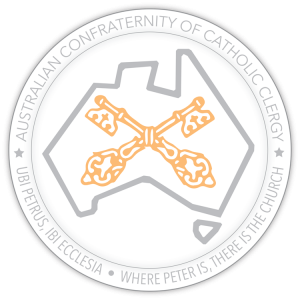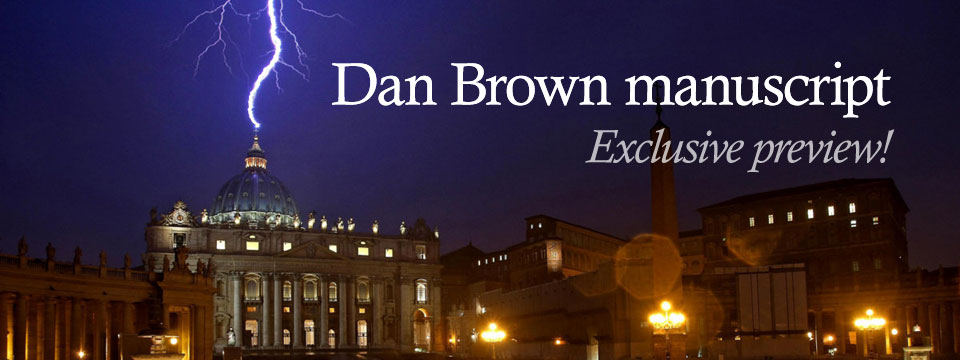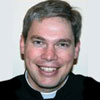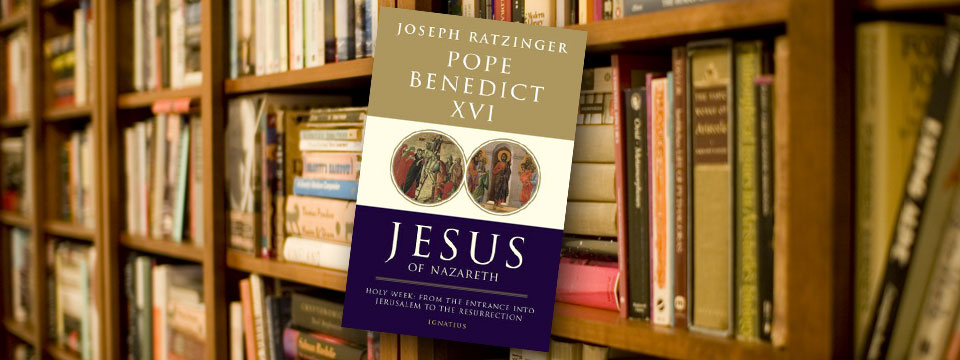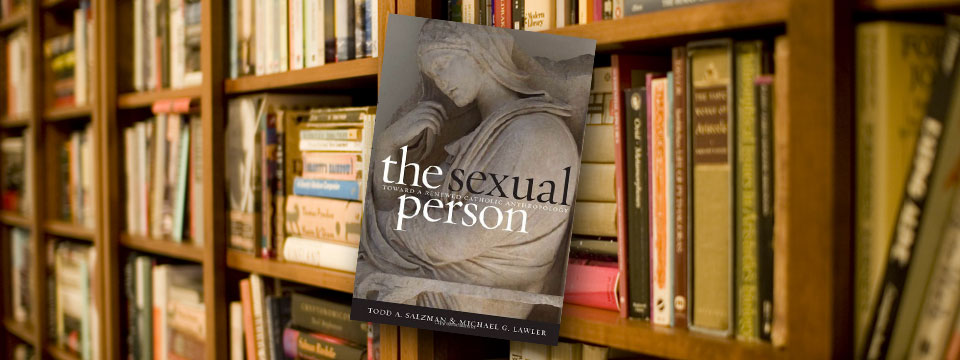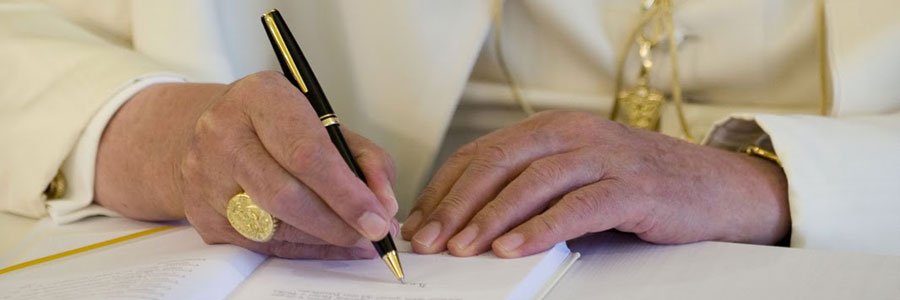Dan Brown — that well known publicity agent for Opus Dei — has been working on a script that was leaked to Fr Richard Umbers, a priest of Opus Dei working in Sydney . . .
The year is 2009, the month – an unseasonably warm November. Loosening his Hermes patterned silk tie, the Harvard symbologist Robert Langdon was reminded of the Roman Warm Period that ran from 250 BC to 400 AD. A time of light initiated by Roman mastery of Italy that ended with the molluscan death of the gorgeous mathematician Hypatia at the hands of an enraged Christian mob in Alexandria.
Ah, Alexandria. City of the great library which bore the name of the Hellenine warrior: Alexander. The Macedonian Greek who had culturally conquered both Persians and Romans. And then, the Church, and the plunge into dark and cold. Monks and superstition. The imprisonment of Galileo. What democratic government today could so silence a man they would keep him under virtual house arrest?
‘Thanks be to the gods for the rebirth of science and light through Newton’ he sighed in his trademark chocolate sounding voice.
The sartorial professor Robert Langdon was jolted awake from his reverie by a hit to the head with the latest Apple gadget – an iPhone 3GS.
Lobbed from the balcony it had landed square on his crown and bounced unharmed to the marble floor in its protective case. He looked up to see the swish of a cassock and red cummerbund disappear into the shadows. Rubbing his still smarting head he swiped the phone unlocked and was greeted with a blue dot satellite-signalling his location at the conference on astrobiology that had been organised by the Pontifical Academy for Science at the Casina Pio IV in the Vatican City.
A message flashed up on the screen: “Meet you in the cortile.”
Nodding apologies to Professor Paul Davies, Robert stepped quickly past the rich sculptural stuccos of the Patrician villa and emerged into an elliptical courtyard, graced with two free-standing portals, and the loggia with its fountain. Rust marks were all that remained of the special ramps installed the previous year for Professor Stephen Hawking when he presented the custodians of Genesis with the Origin of the Universe.
The phone began to shake to the Crazy Frog ring tone. Clasping the second generation 3.6 inch touchscreen to his perfectly formed ear, with a lobe that would have driven Van Gogh wild, he heard a quivering voice.
“Sono io, Andrea Dickson White, leader of the Obscurati.”
“Dickson White – founder of Cornell University? You died almost a hundred years ago!”
“Si. But my spirit lives on in the leader who bears this name. We of the Obscurati seek to maintain the conflict thesis between science and revealed religion. Among our many secret members are not a few Oxford academics who work as Devil’s Chaplains. Ma basta! We of the smoke may have entered the Vatican yet our mission is petering. One of our brothers, Giovanni William Draper, has unearthed ancient texts so challenging that his faith has begun to waver. Help us!”
“How?”
“This time we will meet with you in person at the flower markets of the Piazza di Fiori and tell you everything, tutto!”
Langdon was intrigued. The Obscurati. He would meet their leader under the glower of Giordano Bruno, the rebel Dominican burnt at the stake in 1600 for heresy.
Langdon tucked away the iPhone into the inner pocket of his handmade bespoke suit from Savile Row with its classic slim silhouette and nipped waist. A must have article of clothing for those in the know ever since the Duke of Windsor introduced Gary Cooper, and Cary Grant to the shop. He walked back into the lecture theatre and waited for intermission to slip out the front door.
“Leaving so soon?” inquired Dr. Jose G. Funes, from the Society of Jesus, the eagle-eyed Director of the Vatican Observatory.
“I’ll be back for photos when you finally erect that statue of Galileo you promised,” snapped Langdon.
“Ah, the money got spent on a science project in Africa.”
“What do you care for Africa living in these palatial surrounds?” Langdon gestured at the Renaissance art dripping from every archway.
“The Catholic Church is one of the biggest global health providers.” the Jesuit shot back. “Worldwide it runs more than 5,000 hospitals, 17,000 dispensaries, close to 600 leprosy clinics, and 15,000 houses for the elderly, ill and disabled. Agencies such as Caritas have been working since 1987 in circulating accurate information about HIV, building up an effective response on the ground, advocating for full access to care, treatment, support and education for all, discouraging stigma and encouraging compassion.”
“Maybe it would have been more compassionate to have sent them condoms?”
“Human behaviour is not so easily engineered Professor. It is faith that moves Caritas to provide a quarter of all HIV care in Africa, providing access for all to prevention, treatment, and care grounded in the teachings of the Catholic Church.”
“Teachings of the Catholic Church have seen men die.”
“The teachings of the Catholic Church defend life.”
“Oh, the irony, the irony. It was your own followers who have torn down your Biblical picture of the world which led to a Copernican revolution away from humans at the centre of ‘creation’.” Langdon emphasised that last word with a curl of a smile.
“How so?” The priest gave Langdon a quizzical look.
“LeJeune discovered Trisomy 21 and we now use that information to screen for Down Syndrome in the unborn so they can be scheduled for abortion. And LeJeune himself inherited his genetic knowledge from beans that Augustinian monk Mendel had selected in his garden. Man who was made in the image and likeness of God has returned to being soil of the earth – manure for future growth.
“God doesn’t pull the levers of the universe anymore. There are laws of nature that take care of that, science doesn’t need God to explain anything. Man is a speck in an ever expanding universe and it was Fr Lemaître who propagated the Big Bang theory. Even the earth, which today we date with decaying radioactive isotopes, was first seen to be very old because Bishop Steno discovered fossils in the rock strata and thus his theory of a chronology of different living creatures in different eras was a sine qua non for Darwin’s theory of natural selection.”
The old priest allowed a broad grin to expand over his wizened visage.
“Roberto, Roberto. God writes straight on crooked lines. It was the very condemnation of the works of Aristotle in 1277 that opened up the way for science as we know it today. The university of Paris, founded by the Catholic Church, as with all the others in Europe in that age, was freed from a slavish Aristotelianism to undertake different directions in the progress of invention. At Oxford, Bishop Grosseteste, your namesake, even with Aristotle was able to develop him in such a way that ‘resolution and composition’ became the experimental method of the sciences and mathematics was enthroned as queen. Don’t forget it was the great theologian St Thomas Aquinas who said that religious inspiration leads to the desire for accurate knowledge of the world since it is from creatures that we come to know about the Creator.”
“And the cow jumped over the moon.” The Harvard professor could not bear these fairy tales any longer. He left abruptly in a huff.
Over his shoulder the robed priest fired a parting shot. “Then she will see the craters that bear my confreres’ names.”
Sure, monks had been acting much like Google Docs during the dark ages, mused Langdon, preserving the learning of the ancients from the marauding Magyars and Vikings. Even the Muslims had been contributing to medicine, mathematics and astronomy. But how could Genesis and Science ever see eye to eye?
A hooded figure climbed onto a scooter and waited round the corner of the building eying the American.
Robert hailed a cab that weaved in and around tourists until he finally reached the Piazza. Slipping the taxi driver a 20 Euro note, Langdon left the vehicle and narrowly avoided being pick-pocketed by a professional, swiping away the hand that had seemingly reached for his wallet. To his surprise the Gypsy hand clutched his and dragged him towards her and she popped a fresh flower into the boutonniere of his pure wool suit. Her Hush Puppy eyes pleaded with the professor to show a little trust. The roar of a 150cc Vespa cut short the Medusa like mesmerisation the Romana had worked on Langdon and he looked up to see the hulking frame of a cassocked figure.
“Veni conme!” she cried and they scurried along the crowded pavement, crossed over the Plaza of the Oak, and passed the famous Palazzo on the Via Farnese. Breathless they came up to the barred windows of the Opus Dei Library. Langdon was red in the face and sweating profusely because he had aged and eaten way too much pasta and carried quite a paunch now. The Vespa could be heard accelerating towards them.
“Qua!” She pushed him through the library security scanners and tugged so hard at the sleeve of his suit that the hand sewn buttons popped off. They hid behind the shelves as the huge cleric stomped in and approached the counter. Electrode marks could be seen on the back of his now uncowled head.
“Where is Richard Davidson?” he demanded.
“In the basement” came the reply.
The cleric eyed the buttons on the marble floor and followed the Hansel and Gretel trail they made to where Langdon and the Gypsy girl were squatting. He strode over to them and handed the Harvard professor an academic paper.
“I wanted you to have this” he grumbled and, to Langdon’s visible relief, kept walking past and descended into the basement.
Robert eyed the crumpled paper. “Buddha’s Brain: Neuroplasticity and Meditation.”
He scanned its contents and realised it was an answer to his prayers. Scrawled along the back of the paper was a symbol: a mobile phone and a hand holding it. There were words ‘Answer it’. The Crazy Frog ringtone made him jump upright.
“He’s downstairs.”
Stretching his back and tucking his louis vuitton shirt in, it was Robert’s turn to direct the fortunes of the Gyspsy.
“Follow that priest!”
Descending the stairs into the subterranean scantinato they came across an eerie scene: rows and rows of priests and nuns in contemplation with electrodes attached to their skulls. Researchers in egg-shell white jackets were conducting MRI scans in the search for hemodynamic changes. At the end of the room was an old man wearing a white jacket repeating a mantra. “Beresit Bara Elohim, Beresit Bara Elohim.”
The gypsy girl ran up to the man and kissed both of his cheeks: “Nonno, I bring you the man.”
Giovanni William Draper looked up at Langdon. He was seated in the half-light between two pillars of books filled with science and learning from the ages.
“Beresit Bara Elohim!”
“In the beginning, in the beginning. It was under our noses all the time.”
He laughed and knocked both book stacks to the floor. Langdon fixed an incredulous stare at this modern day Archimedes in his Eureka moment. “Genesis and science, in the beginning.”
Langdon looked at the Hebrew text in front of the man. “Bereshit bara Elohim et hashamayim ve’et ha’arets.” The first verse of the Bible.
“What has this got to do with science?”
Draper looked down at the tomes lying at this feet: Galileo. Stanley Jaki. Walker Percy.
“Galileo may have fallen out with the Church, but he would hardly have taken so much trouble studying Jupiter and dropping objects from towers if the reality and value and order of things had not first been conferred by belief. Only a truly transcendental Creator could be thought of as being powerful enough to create a nature with autonomous laws without his power over nature being thereby diminished. Think about it, the doctrine of creation puts all material beings on the same level as creatures. There are no divine bodies in the Christian cosmos. All bodies, heavenly and terrestrial, are on the same footing, on the same level. The motion of the moon and the fall of a body on earth are governed by the same law of gravitation. And we who are in the image and likeness of God share in his rationality. Not only do we believe that the universe is comprised of stable and rational laws but we also believe that we can discover those laws and understand them. This is the grounding faith gives to science.”
The iPhone began to jump in Langdon’s pocket again to the tune of the Crazy Frog. He answered. “A-ha. Yeah, yeah. I’m looking at him now. He’s reading a Bible in the Biblioteca. I think I’ll join him.”
Langdon closed the phone and switched it to silent. He pulled up a chair to talk some more with the renegade scientist.
From a brown paper bag next to his chair Draper pulled out an apple and gave it to Robert.
“Hai fame?”
“Si.”
He bit into it and sighed forlornly “I hope I won’t be expelled from the Cathedral for this.”
